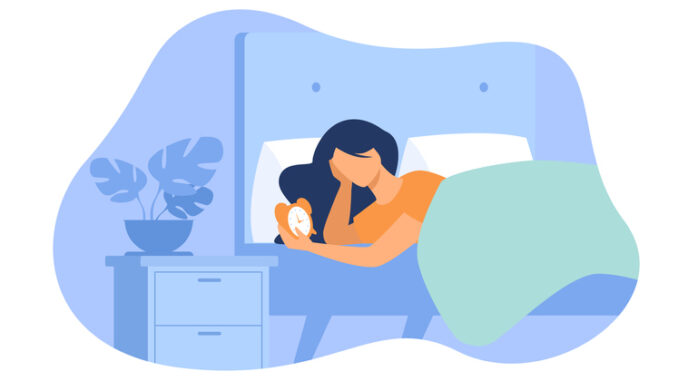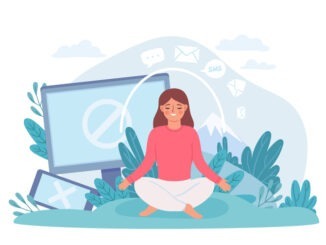
If you’re struggling with your sleep, try some of these tips and suggestions to help improve it
CREDIT: This is an edited version of an article that originally appeared on Mind
Some people find these ideas useful, but remember that different things work for different people at different times. Only have a go at what you feel comfortable with, and try not to put too much pressure on yourself. If something isn’t working for you, or doesn’t feel possible just now, you can try something else, or come back to it another time.
Try to establish a routine
It could help to establish a regular sleeping routine or habit. You might need to try different things before you find what works for you. You could try going to bed and waking up at around the same time every day, or it might help to go to bed only once you feel ready to sleep, but still to get up around the same time.
Relax before you try to sleep
You may find a relaxation routine can help you prepare for sleep; these are some ideas you could try.:
- Do something calming – for example, listening to relaxing music, or having a bath.
- Muscle relaxation – consciously tense and relax your muscles, one after the other, starting with your toes and working up your body until you reach the top of your head.
- Visualisation – picture a scene or landscape that has pleasant memories for you, or that you imagine would be a calming or peaceful place to be.
- Meditation – some people find it helps to try meditation techniques, like mindfulness. You could learn these at a class or from self-help guides.
Fill in a sleep diary
You may find it difficult to work out what’s affecting your sleep; a sleep diary involves recording information about your sleep habits to help you better understand your sleep problem, and what’s affecting it.
If you want to, you can show your sleep diary to healthcare professionals to help explain the problems you’re having; for example, you could take it with you to a doctor’s appointment. You should keep your sleep diary for at least two weeks if it’s to be really useful; .A sleep diary could include information about:
- what time you go to bed and what time you get up;
- total number of hours of sleep, or a rough idea if you’re not sure;
- overall quality of sleep, ranked 1–5;
- how many times you wake up in the night, how long you’re awake and what you do while you’re awake;
- whether you have nightmares, night terrors or sleep paralysis, or have sleepwalked during the night;
- whether you sleep during the day and, if so, for how long;
- any medication you’re taking, including the dose and what time you take it;
- the amount of caffeine, alcohol or nicotine you have;
- the amount of physical activity you do;
- what you eat and drink;
- your general feelings and moods, including any anxious or repetitive thoughts.
Try to make your sleeping area more comfortable
You might not have much control over where you sleep – for example, if you’re staying in hospital or temporary accommodation – but there might still be small changes you can make, or ask someone to help you with. For example:
- Try different temperatures, light and noise levels to see what works for you.
- Lots of people find dark, quiet and cool environments best, but everyone is different.
- If you can’t sleep in darkness, try keeping a light or bedside lamp switched on.
- If silence makes it harder to sleep, listen to music, nature sounds, a podcast or the radio.
- You might find it helpful to try different bedding – for example, a warmer or cooler duvet, or a different pillow.
- If you’re affected by issues with a partner – for example, snoring or problems sharing a bed – the British Snoring & Sleep Apnoea Association has information on its website and a helpline.
Think about screens and device settings
Using screens in the evening, including on tablets and mobile ‘phones, can negatively affect your sleep. It can help to think about when and how you use screens. For example, you could try:
- avoiding screens an hour or two before bed;
- cutting down on screen time before you try to sleep;
- avoiding stimulating activities, such as playing games;
- using a blue light filter, night mode or dark mode – you might be able to find these options in your device settings and in individual app settings;
- adjusting other device settings – for example, changing the brightness, or using silent, flight or airplane, or do not disturb mode.
Look after yourself
Looking after yourself physically can help improve your sleep. Try these things to see if they help.
- Think about your diet – some types of foods can affect your sleep, including caffeine and sugar. It can also help to avoid eating large meals right before going to bed. Our pages on food and mood have more information.
- Try to do some physical activity – physical activity can help you sleep, including gentle physical activity. It can be particularly helpful to be active outdoors. Some people find they need to stop any physical activity a few hours before going to sleep. Our pages on physical activity and mental health have more information.
- Spend time outside – being outside in green space can help you relax and improve your wellbeing. Spending time in natural light can also be helpful for your sleep. Our pages on nature and mental health have more information.



Be the first to comment